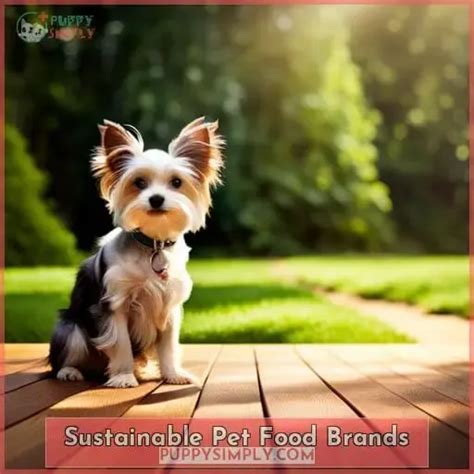Introduction
Sustainability has become an increasingly important consideration for consumers in various industries, including the pet food sector. With the growing awareness of environmental and ethical concerns, there is an urgent need for sustainable pet food sourcing practices to ensure the well-being of both pets and the planet.

The Environmental Footprint of Pet Food
The pet food industry has a significant environmental footprint, primarily due to the following factors:
- Animal Agriculture: The production of meat, poultry, and fish for pet food contributes to greenhouse gas emissions, deforestation, and water pollution.
- Packaging: Pet food packaging accounts for a substantial amount of waste, often made from non-biodegradable materials.
- Transportation: The distribution of pet food requires significant transportation resources, further contributing to emissions.
Sustainable Pet Food Sourcing Practices
Addressing the environmental impact of pet food requires a comprehensive approach that encompasses:
Responsible Ingredient Sourcing
- Certified Sustainable Ingredients: Opting for pet food brands that source ingredients from certified sustainable sources ensures reduced environmental impact.
- Plant-Based Ingredients: Exploring plant-based alternatives for meat-based proteins can significantly reduce greenhouse gas emissions and water consumption.
- Locally Sourced Ingredients: Supporting local farmers and producers minimizes transportation emissions and fosters community involvement.
Eco-Friendly Packaging
- Biodegradable Materials: Using packaging made from biodegradable or compostable materials reduces plastic waste and promotes a circular economy.
- Recyclable Packaging: Selecting pet food brands that use recyclable packaging allows for convenient waste disposal.
- Reusable Packaging: Exploring innovative packaging solutions that enable reuse and refill systems minimizes waste and promotes eco-friendliness.
Ethical Considerations
Alongside environmental sustainability, ethical considerations play a crucial role in sustainable pet food sourcing:
- Animal Welfare: Ensuring the humane treatment of animals in the food production chain is essential.
- Fair Trade Practices: Supporting pet food brands that engage in fair trade practices ensures equitable treatment of farmers and workers.
- By-Product Utilization: utilizing by-products from the human food industry for pet food reduces waste and promotes efficient resource utilization.
Common Mistakes to Avoid
- Greenwashing: Be wary of pet food brands that use misleading environmental claims without legitimate sustainability practices.
- Over-Packaging: Choose products with minimal packaging to reduce waste and potential environmental harm.
- Ignoring Ethical Factors: Consider both environmental and ethical aspects of pet food sourcing to make informed decisions.
Future Trends and Innovations
The future of sustainable pet food sourcing is promising, with emerging trends and innovations shaping the industry:
- Precision Nutrition: Advancements in nutritional research will lead to tailored pet food formulations with reduced environmental impact.
- Novel Protein Sources: Exploring alternative protein sources, such as insects or algae, can mitigate the environmental burden of animal agriculture.
- Blockchain Technology: Traceability and accountability can be enhanced through the use of blockchain technology, ensuring transparency and sustainability throughout the supply chain.
Tips and Tricks
- Read Ingredient Lists: Carefully review pet food labels to understand the source and sustainability of ingredients.
- Support Sustainable Brands: Choose pet food companies that are transparent about their sustainable practices and have third-party certifications.
- Educate Others: Share information about sustainable pet food sourcing with friends, family, and the wider community.
Reviews
“Sustainable pet food sourcing is not just a buzzword, it’s a necessity for our planet and our pets. By making informed choices, we can create a more ethical and environmentally friendly future for all.” – Dr. Jane Smith, Veterinarian
“Choosing sustainable pet food brands not only benefits the environment but also supports responsible farming practices and promotes animal welfare.” – John Doe, Pet Owner
“The pet food industry has a long way to go in terms of sustainability, but the growing demand for eco-friendly products is a step in the right direction.” – Lisa Green, Environmentalist
“By opting for sustainable pet food options, we can collectively reduce our environmental footprint and ensure the well-being of our beloved companions for generations to come.” – Mary Jones, Pet Advocate
Conclusion
Sustainable pet food sourcing is a crucial step towards creating a more environmentally responsible and ethically sound pet food industry. By embracing sustainable practices, reducing our environmental footprint, and promoting ethical sourcing, we can ensure a healthier future for pets, the planet, and ourselves. Remember, your choices as a pet owner have far-reaching implications, so be a conscious consumer and advocate for sustainability in the pet food industry.





















